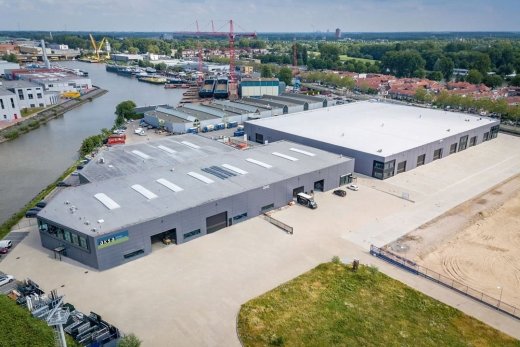When purchasing a generator, the technical specifications can feel overwhelming. Terms like kVA, kW, power factor, and voltage often appear on datasheets, leaving buyers wondering how to interpret them. However, understanding these specifications is essential for selecting the right generator for your needs—especially in corporate or industrial settings where power reliability is critical.
In this guide, we break down the key terms and explain how they relate to the performance and capacity of a generator.
What is kVA?
kVA stands for kilovolt-amperes, a unit used to measure the apparent power of a generator. Apparent power includes both active power (used by devices) and reactive power (which supports the electrical system).
- Apparent Power: Represents the total power supplied by the generator.
- Common Use: Generator capacity is often rated in kVA, particularly in industrial and commercial markets.
Why kVA Matters: kVA ratings indicate the generator’s overall capacity but don’t account for how efficiently it converts power into usable energy. This is where the power factor (PF) comes into play.
Understanding Watts and Kilowatts (kW)
Watts (W) measure real power—the power that actually performs work, such as running machinery or lighting. Kilowatts (kW) are simply 1,000 watts.
- Active Power: The power that directly powers your equipment.
- Calculation: kW=kVA×Power Factor\text{kW} = \text{kVA} \times \text{Power Factor}kW=kVA×Power Factor.
For example, a generator rated at 100 kVA with a power factor of 0.8 delivers 80 kW of real power.
Power Factor (PF): The Link Between kVA and kW
The power factor is a ratio that represents the efficiency of a generator in converting apparent power (kVA) into real power (kW). It typically ranges from 0.8 to 1.0 for most generators.
- PF of 1.0: Indicates 100% efficiency, common in resistive loads like heating.
- PF of 0.8: The standard for most industrial equipment, which includes inductive loads like motors or compressors.
Why Power Factor Matters: When selecting a generator, consider the type of load you will connect. For mixed loads, understanding the PF ensures the generator can handle real-world conditions.
Voltage and Frequency: Ensuring Compatibility
Voltage and frequency are critical to ensure the generator matches your equipment and regional standards.
- Voltage: Measured in volts (V), it determines the potential difference supplied by the generator. Common standards include 120/240V for small setups or 480V for industrial use.
- Frequency: Measured in hertz (Hz), it specifies how many times the current alternates per second. Most countries use either 50 Hz or 60 Hz.
Key Considerations:
- Ensure the generator’s output matches the voltage and frequency requirements of your equipment.
- For international operations, consider a generator with adjustable voltage and frequency settings.
Load Types: Resistive vs. Inductive
Different equipment types place varying demands on a generator, making it essential to understand the load type.
- Resistive Load: Includes devices like heaters, lights, and resistors. These loads draw power without causing phase shifts, resulting in a PF of 1.0.
- Inductive Load: Includes motors, pumps, and compressors. These loads cause phase shifts and have a lower PF, typically around 0.8.
Why Load Matters: Knowing your load type ensures the generator you select provides adequate capacity without overloading or inefficiency.
Single-Phase vs. Three-Phase Generators
Generators are available in single-phase or three-phase configurations, depending on your power needs.
- Single-Phase Generators: Ideal for residential or light commercial use, delivering power for small equipment and basic lighting.
- Three-Phase Generators: Designed for industrial and large commercial applications, capable of supporting heavy machinery and high-powered equipment.
Key Tip: For businesses, three-phase generators are often more efficient and better suited to handle variable loads.
Additional Specifications to Consider
While kVA, kW, and PF are the primary considerations, other specifications also influence generator performance:
- Fuel Efficiency: Determines operating costs over time.
- Noise Levels: Critical for urban or residential applications.
- Run Time: The duration the generator can operate on a full tank of fuel.
- Startup Type: Automatic or manual, depending on your preference.
Understanding generator specifications like kVA, kW, power factor, and voltage is crucial for choosing the right unit. For corporate and industrial buyers, these details ensure the generator can handle your specific power requirements efficiently and reliably.
When making your selection, consider your operational needs, load types, and regional standards. For expert advice and high-quality generator solutions, Power Genset NL is here to help you power your business with confidence.Contact us today at sales@powergenset.nl to learn more about our offerings and how we can support your power needs.

